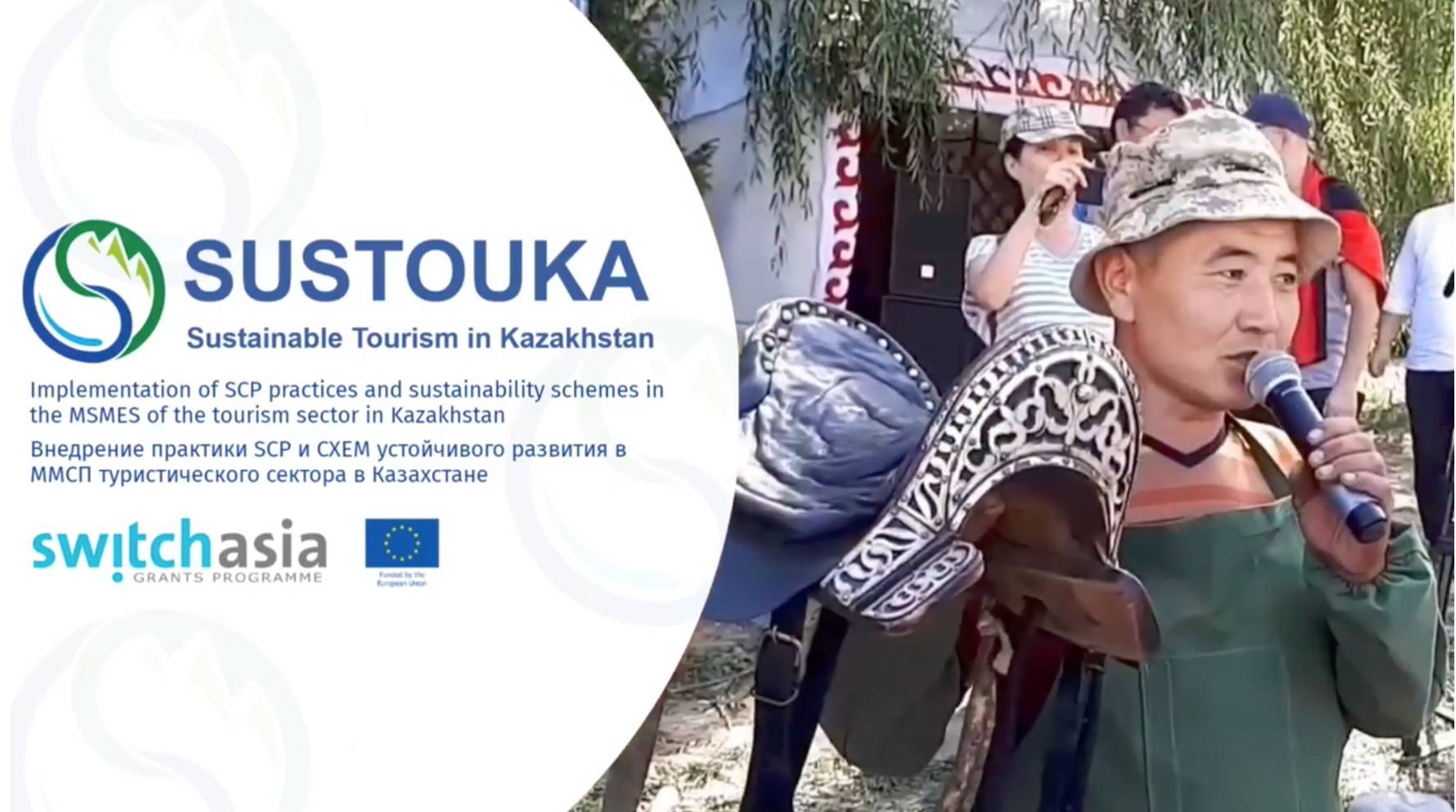
Kazakhstan is the largest country in Central Asia and ninth largest in the world. Sustainable tourism, including nature and eco-tourism, not only provide great economic opportunities for the Kazakh people, but may also facilitate the country’s transition towards a green economy and the achievement of UN Sustainable Development Goals (SDGs). Tourism is in fact strongly linked to SDG 8: promoting sustained, inclusive, and sustainable economic growth, employment and decent work for all; SDG 12: ensuring sustainable consumption and production patterns; SDG 14: conserving and sustainably usingoceans, seas, and marine resources for sustainable development; as well as SDG 15: protecting, restoring and promoting sustainable use of terrestrial ecosystems, sustainably managing forests, and halting biodiversity loss. However, the tourism industry in Kazakhstan is currently suffering from inadequate transport infrastructure, complex visa regimes, limited appeal of tourism products, low quality of tourism standards, shortage of skilled workers, limited understanding of the tourism sector by financial institutions, and weak branding and destination management.
To respond to these challenges, the EU funded SWITCH-Asia SUSTOUKA project was launched in 2020 to promote sustainable consumption and production (SCP) practices and sustainable development schemes in MSMEs operating in Kazakhstan’s tourism sector. The project is implemented by an international and multidisciplinary consortium consisting of EKOTEK (Spain, coordinator), the Kazakhstan Tourism Association (KTA), the Kazakhstan Association of Hotels and Restaurants (KAGiR) and ECEAT (Netherlands).
On 23rd February 2021, a round table was organised and delivered to discuss how to develop further the tourism industry in Kazakhstan, keeping high on the agenda the preservation of the environment, people’s cultural identity, and adapting the Travelife certification programme to the country’s needs.
The meeting was divided into three sessions and was attended by experts, specialists and stakeholders working on environmental management, socio-economic and cultural aspects, and nature conservation. The following topics were addressed during the sessions:
- Opportunities for developing tourism and preserving the environment;
- Maintaining the authenticity of tourist products;
- Improving work standards and adapting European standards to Kazakhstan’s market;
- Developing and implementing environmental standards;
- Awareness raising and promoting tourism culture;
- Increasing services provided to people with disabilities;
- Measures for adapting the Travelife sustainability certification system in the context of Kazakhstan.
Kazakhstan’s strength as a tourism destination lies in its natural and cultural heritage, and historical assets. During this meeting, stakeholders took into account all the elements needed to promote the country as a successful sustainable tourism destination targeted to both local residents and foreign tourists. The attractiveness for local residents to work in the tourism sector without affecting their usual way of life was also addressed. The event closed with the general consensus that sustainable tourism is fundamental for both the people and the planet. Sustainable development is about using resources in a way that they are allowed to regenerate fully, giving future generations access to the same resources we enjoy today. Through the promotion of SCP in tourism, the SUSTOUKA project is directly working towards this objective.
Follow SUSTOUKA on Facebook, Instagram and Youtube and learn more about earlier and future events.


